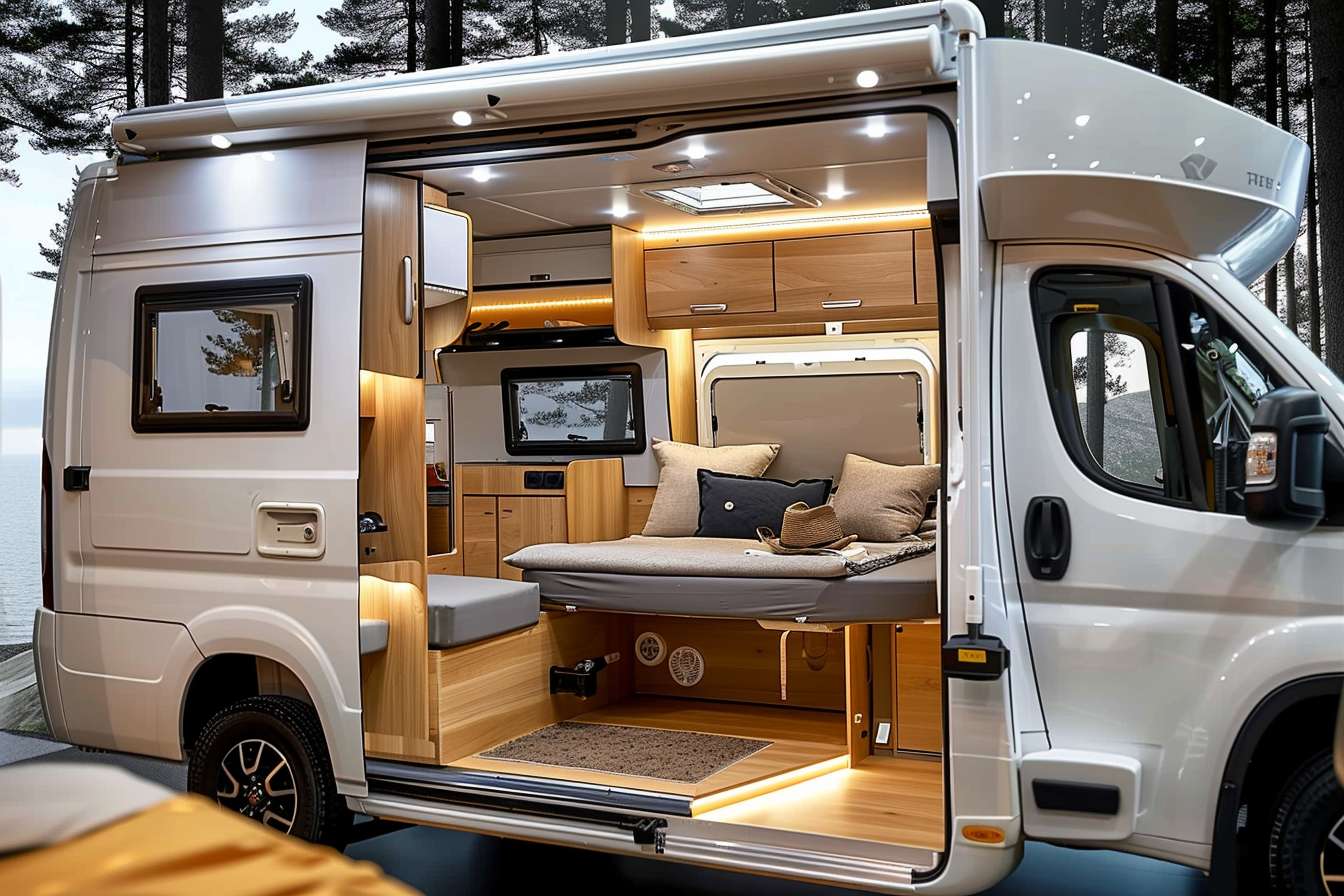Camper Vans: A Modern Approach to Flexible Travel
The rise of camper vans has revolutionized the way people approach travel and outdoor adventures. These versatile vehicles offer a unique blend of mobility, comfort, and freedom, allowing travelers to explore diverse landscapes while carrying the comforts of home. As more individuals seek flexible and sustainable travel options, camper vans have emerged as a popular choice for both short getaways and extended journeys.

What types of camper vans are available for different lifestyles?
Camper vans come in various sizes and layouts to accommodate different travel needs and preferences. Class B motorhomes, often built on van chassis, are compact and easy to maneuver, making them ideal for solo travelers or couples. These typically feature a kitchenette, sleeping area, and basic bathroom facilities. For those requiring more space, Class C motorhomes offer additional living areas and often include an over-cab sleeping compartment.
Conversion vans represent another popular option, allowing owners to customize their vehicles to suit specific needs. These range from DIY projects to professional conversions of cargo vans or passenger vans. Layouts can include murphy beds, modular furniture, and innovative storage solutions to maximize space efficiency.
For outdoor enthusiasts, adventure vans equipped with rugged suspension systems and off-road capabilities provide access to remote locations. These often feature roof racks for carrying gear, solar panels for off-grid power, and outdoor shower systems for post-adventure clean-up.
How do camper vans support sustainable and flexible travel?
Camper vans offer several advantages in terms of sustainability and travel flexibility. Their compact size typically results in better fuel efficiency compared to larger RVs, reducing the overall carbon footprint of travel. Many modern camper vans incorporate eco-friendly features such as solar panels, composting toilets, and energy-efficient appliances, further minimizing environmental impact.
The flexibility of camper van travel allows users to adapt their plans easily, avoiding overcrowded destinations and spreading tourism more evenly across different locations. This can help reduce the strain on popular tourist spots and support local economies in less-visited areas. Additionally, the self-contained nature of camper vans reduces the need for hotel accommodations, potentially lowering the overall resource consumption associated with travel.
What maintenance and care tips keep camper vans road-ready?
Regular maintenance is crucial for keeping a camper van in top condition and ensuring safe, reliable travel. Routine checks should include tire pressure and tread depth, brake system inspections, and oil changes according to the manufacturer’s recommendations. The vehicle’s suspension and steering components should be inspected regularly, especially for those frequently traveling on rough terrain.
For the living area, proper care of water systems is essential. This includes regular cleaning and sanitizing of freshwater tanks, checking for leaks in plumbing, and winterizing when necessary to prevent freeze damage. Appliances such as refrigerators, stoves, and heaters should be serviced annually to ensure safe and efficient operation.
Electrical systems, including batteries, solar panels, and inverters, require periodic checks and cleaning to maintain optimal performance. Proper ventilation and moisture control are also important to prevent mold and mildew growth inside the van.
What are common mistakes to avoid when buying or converting a camper van?
One of the most common mistakes when purchasing a camper van is underestimating the importance of layout and functionality. Buyers should carefully consider their travel style and needs to ensure the van’s design aligns with their expectations. Test drives and overnight stays in similar models can provide valuable insights before making a purchase.
For those converting a van, a common pitfall is inadequate planning and budgeting. Conversions often take more time and money than initially anticipated. It’s crucial to research thoroughly, create detailed plans, and allocate sufficient resources for unexpected challenges.
Another mistake is neglecting to consider the vehicle’s weight capacity. Overloading a camper van can lead to safety issues and mechanical problems. Careful consideration of equipment and furnishings is necessary to stay within the vehicle’s weight limits.
Ignoring local regulations and zoning laws can also cause problems for camper van owners. It’s important to research parking restrictions, camping regulations, and any specific laws pertaining to living in vehicles in areas where you plan to travel.
How much does a camper van typically cost?
The cost of a camper van can vary significantly based on factors such as size, features, and whether it’s new or used. Here’s an overview of typical price ranges:
| Type of Camper Van | Price Range (USD) | Key Features |
|---|---|---|
| Used Conversion Van | $20,000 - $60,000 | Basic amenities, older model |
| New Class B Motorhome | $80,000 - $150,000+ | Factory-built, full amenities |
| Custom Conversion (DIY) | $5,000 - $30,000 | Personalized, varies widely |
| Luxury Class B | $150,000 - $250,000+ | High-end finishes, advanced tech |
Prices, rates, or cost estimates mentioned in this article are based on the latest available information but may change over time. Independent research is advised before making financial decisions.
When considering the cost of a camper van, it’s important to factor in ongoing expenses such as maintenance, fuel, insurance, and campground fees. While the initial investment can be substantial, many owners find that the flexibility and potential for long-term travel can offset costs compared to traditional vacations or housing options.
In conclusion, camper vans offer a unique blend of adventure and comfort, catering to a wide range of travel styles and budgets. With proper research, maintenance, and care, these versatile vehicles can provide years of memorable experiences and the freedom to explore diverse destinations at your own pace.




